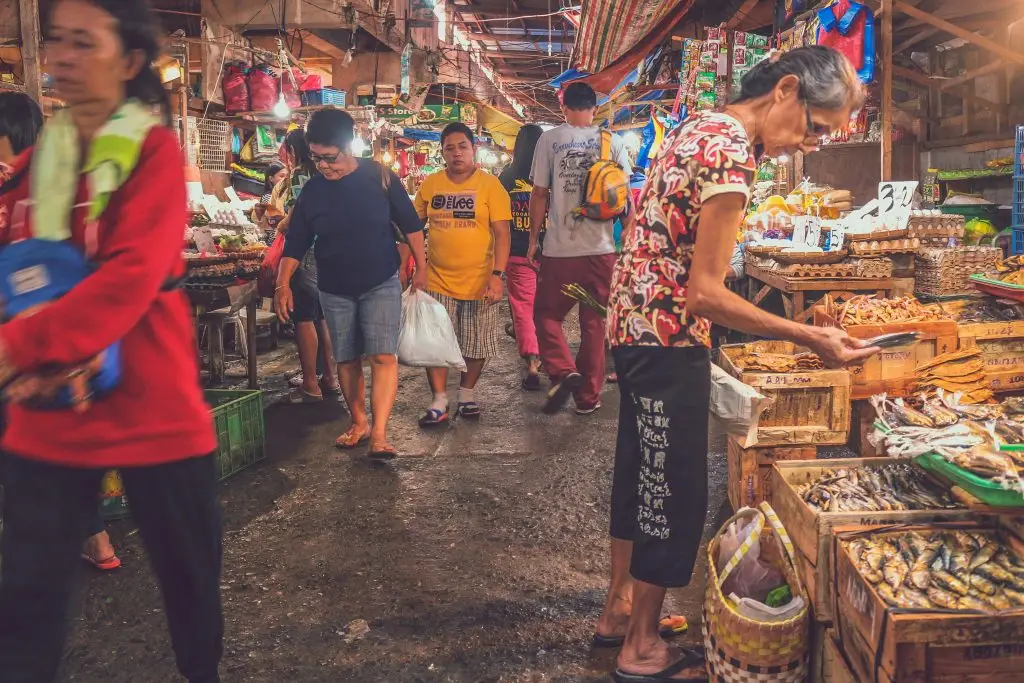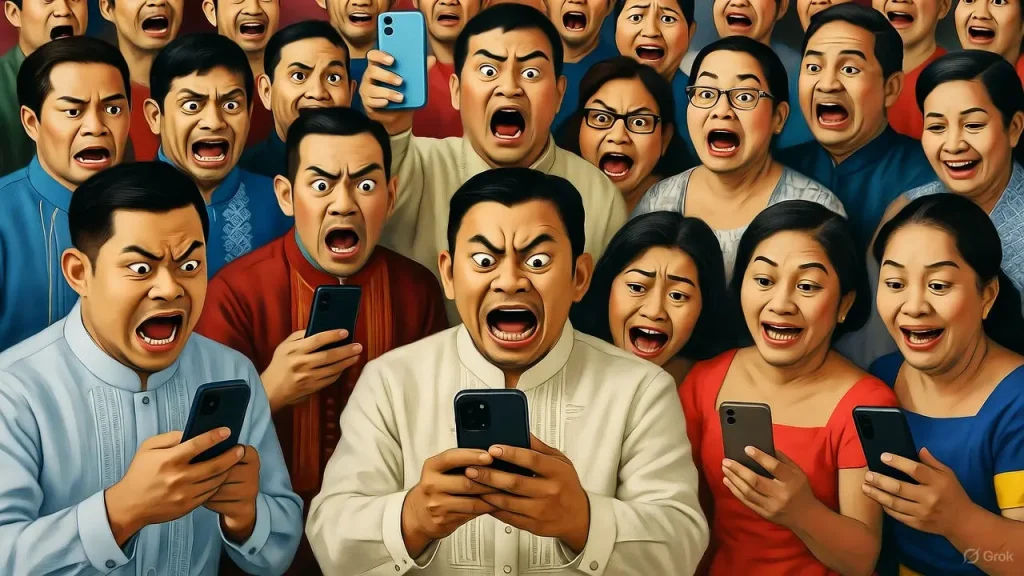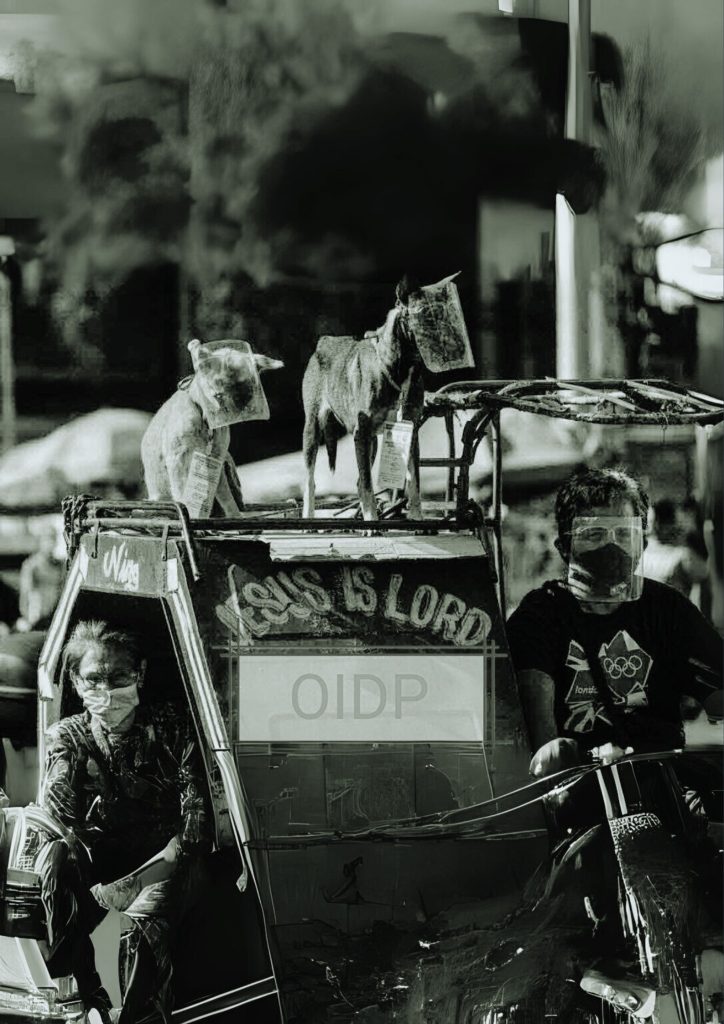
A controversial take on the systemic and cultural issues that contribute to the Philippines’ slow progress compared to its neighbors.
Think the Philippines is Backward?
Let’s Test That Belief…
For the past 70-plus years, people from western countries have decried the conundrum presented by the blatantly negative characteristics observed in Philippine governments on the one hand, starkly conflicting with how average Filipinos are able to remain so upbeat about their lives in the face of such adversity on the other. A critical investigation of little-known, real-world factors into what one would think are the underlying reasons behind this glaring dichotomy has resulted in some surprising revelations.
The consternation that exists in the perceptions of modern Filipino culture from the standpoint of Westerners is striking. Americans and Europeans find it difficult to understand why Filipino voters insist on re-electing the same elites who have purposely doomed them to generational, endemic poverty. Yanks and Brits also simply can’t fathom how those very same voters fervently believe their politicians will “eventually” lift them out of the doldrums through the implementation of measures that are only mentioned during campaigns but never brought to fruition afterward.
It is painful to witness how, when the “masa” is once again sent home disappointed, instead of pitchforks, torches and vuvuzelas blaring in the streets calling for public hangings of mayors and governors, the common refrain is a sighing, “bahala na, Kawawa nga tayo, at least kasama natin ang isa’t – isa”… then it’s time to fire up the ole karaoke machine and pull out the Empe Light until the next “blessing” envelopes arrive 2 years later.
In surveys and scientific studies conducted over the past 25 years, the vast majority of average Filipinos state a strong desire to leave the country and live/work in a Western country like the US or Canada. On the opposite side of the spectrum, less than 1% of Westerners express a wish to live in the Philippines. However, over 90% of Filipino immigrants to western countries say they one day want to retire back home, where – after saving a horde of Dollars over decades in the West – they can live like the heretofore hated 10% (aka. the elites).
During the course of the queries given to middle and lower class Filipinos, when asked “what is it about life in the Philippines that makes you want to live abroad?”, the answers are (1) to escape corruption, (2) have the opportunity to earn a living wage, and (3) live in a safe environment away from crooked cops. In contrast, wealthy Filipinos firmly admit they enjoy traveling out of the country, but would never, ever consider actually living anywhere but in the Philippines, where they are treated like little gods and goddesses.
Research has been conducted annually by most western embassies throughout Southeast Asia on migration trends over the same period, with the results showing notable divergence from the Philippines. Vietnam went from 75% wishing to emigrate in 1992, down to 35% in 2015; Thailand dropped from 72% down to 21%; South Korea descended from 60% to 10%. Only in the Philippines has the percentage of people aiming to leave their country remained consistently above 90%.
Interestingly, whereas sociologists in America and the UK interpret these figures as an indictment on the governmental system in place in Manila, Filipinos – at all levels of society – hardly raise an eyebrow when presented with the same data. They universally do not feel as if wanting to leave the land of their birth as a negative thing, rather a matter of pragmatism rooted in their modern culture.
The key differentiating factor determining the broad disparity between the Philippines and her ASEAN neighbors turns out, not surprisingly, to be the Filipino Diaspora. Otherwise referred to as OFW’s (Overseas Filipino Workers) and their émigré’ brethren, commonly known as “Balikbayan” (those who return home), the total figure comprises around 17% of the aggregate population, far beyond that of the other Asian bloc member nations, combined.
In 1975, there were less than 1 million Filipinos living overseas. That number has increased to around 18 million today, all of whom send money back to their families in the form of “remittances” that constitute a respectable portion of GDP. But, beyond being the stimulus driving the condo-building, traffic-causing booms in Manila and Cebu, OFW remittances are most importantly responsible for the two things that invariably portend dark clouds over developing countries with finite living spaces: Over-population and complacency due to lack of competition for food in the short term.
40 years ago, the Philippines held 30 million souls. After only 2 generations, the number had risen to around 110 million, nearly quadrupling in volume. At that time, what the UN today terms “food security” was at a moderate to average level in Philippine cities, but far lower in the provinces. Death from starvation was still a real threat in 1977 under martial law that sought to crack down on communist insurgencies in the countryside, whose members were predominantly poor farmers.
In an effort to stem NPA influence and bolster his own popularity, Marcos formed the Philippine Overseas Employment Administration in 1982, believing – according his advisors – that more Filipinos abroad sending money home would stimulate the economy. The effort took off in a serious way during the Aquino and Ramos administrations, with the latter even proclaiming OFW’s the “new heroes of the Philippines”.
Even though official government estimates have remittances now at 8 – 9% of GDP, most feel the real impact is much, much greater, being directly responsible for the explosion of shopping malls, fast food chains and an obesity epidemic in children from poor families, something unthinkable just 20 years ago.
A fact seemingly perplexing to government economists touting the country as the “New Asian Tiger”, the percentage of Filipinos living in poverty has in fact nearly doubled since the late 70’s, primarily due to an unfettered population explosion that has been enabled, again, by OFW remittances. With unlimited access to high-protein food, family sizes have bloomed from 2-3 children per couple in 1975, up to sometimes 8-9 currently.
Obstetrics wards, once quiet, revered places where high infant mortality rates were the norm have become “baby factories”, with the rate of out-of-wedlock pregnancies, a social taboo only 30 years earlier, skyrocketing. Adding to the malaise is the fact that, although the Duterte government was able to work through court cases brought by the Church against contraception that lasted nearly 5 years, the high cost and lack of supply within communities that are most needy mean women continue to lack control over their reproductive health.
When faced with parallel scenarios in decades past, the other ASEAN countries ran the numbers, foresaw the pitfalls and decided to limit their population growths, choosing to concentrate on education and industrial development. As population densities stabilized, bona fide middle classes quickly came about, which drove their economies to great heights in relatively short periods of time. South Korea and Singapore are the superlative examples of this, with Malaysia and Thailand taking on the roles of Johnny-Come-Lately’s.
Somehow, despite vociferous, constant complaints by Filipino thinkers, journalists and Balikbayan in both the press and political discourse, the Philippines seems determined to buck the strategy of quality over quantity that visibly allowed their peers to soar, preferring instead to export its most talented citizens and market those left behind as cheap labor.
The answer to the question of “why” now appears evident.
Back in the time before political correctness, on the opening day of most American university first-year psychology classes, professors would commonly belly up to the podium and hurl a time-honored mind-bender riddle at their freshman charges: “How many psychologists does it take to change a light bulb?” After pointing at 3 or 4 students for their guesses and receiving estimates of between “none” and “a thousand”, the lecturer would pause for effect, breath in heavily, and blurt out, “It only takes ONE!”.
As soon as the giggling and snarky facial expressions subsided, he or she would add the proverbial kicker, “Of course, it only takes one psychologist to change a light bulb, BUT the light bulb must first want to change”. Without delving too deeply into what drives Filipinos living in the Philippines to do what they do, this is a fairly straightforward way of looking at why the country lags behind the rest of the region.
To the absolute dismay of western observers, despite what they might say or write publicly, Filipinos in fact like the way things are and wouldn’t want it any other way.
Let’s test that out. Imagine for the moment a Lee Kwan Yew – esque leader suddenly appearing in Manila who initiates the kinds of social and government reforms that led to what became modern Singapore, but this time in the Philippines? Conjure up the vision of a vibrant middle class exploding out of the poverty-stricken masses that, after only 10 years of vigorous population control, would see a country with only 60 million people in it.
The ramifications would be game-changing: Fewer people translates into less competition for space (lower real property prices), higher wages (enhanced personal spending), greater opportunity for better education (fewer students per classroom) and, most importantly, an end to the brain drain (bye-bye OFW movement). The country, as a whole and Filipinos, as a community, would benefit amazingly.
In such an event, a number of things would rapidly follow. As with middle class revolutions in the West after World War II, the haves would be forced to pay more and more for services and loyalty from have-nots whom they could, in the past, so easily command for so little. They would suddenly find themselves buying their own groceries, cooking their own dinners and cleaning their own homes. The men could no longer afford drivers or bodyguards to make them look important in front of foreign guests; mistresses would become exponentially expensive. And squatter camp assassins would no longer be available to settle disputes, as there would be no more squatter camps.
The biggest impact, not only to the rich but even the lower-middle classes, would be – and this is the one major concern that is brought up more often in conversation accompanied by gasps and shocked looks – that the women would be forced to raise their own children, as the pool of cheap “Yaya’s” would be the very first service category to dry up.
In short, future Filipino middle and lower-level wealthy classes would be compelled to live their lives the way Westerners do, and – quoting my rich Filipino friends – “that must absolutely, positively never be allowed to happen”.
But, what about the poor? Certainly, those in the great majority who are used to doing without servants would want the upward mobility a middle class could offer. Ironically, the equation becomes further convoluted when random cadres within the Masa are asked if they would enjoy living in a Philippines that is run like Singapore, a land with no corruption, no pollution and excellent job opportunities. The initial response is a resounding, “YES! We want ‘Disciplina at Hustisya’”.
But when told that in civilized societies, backyard Karaoke parties are prohibited, barking dogs are sent to Animal Control, everyone on a motorcycle must wear a certified helmet, infants may not ride on scooter handlebars, and the incorruptible police will arrest you if you walk in the street four-abreast, a bemused deer-in-the-headlights look appears on their moping faces, followed by the expected, “Well, on second thought, maybe not”.
Filipinos living in the First World virtually never share how difficult it really is to live there with the folks back home, because being recognized as the top “breadwinner” in a family unit carries a high value in their culture. And reputation is everything. Complaining about how you lost your license for driving drunk in Cleveland dampens respect from the ate’s and kuya’s back in the barangay. Those left behind only see the remittances that appear, magically, in Lola’s ATM account, and drown in envy over the Facebook pictures of their OFW siblings living the high life.
Facing realities is a challenge for adolescent or undisciplined minds. Westerners disparage the poverty, crime, EJK’s and corrupt government exhibited in countries such as the Philippines yet continue to invest substantially in industries that benefit from extreme low-cost labor therein. Filipino politicians bristle mightily and spew hateful charges of post-colonial hypocrisy when the West calls them out on human rights violations, but they still go to Johns-Hopkins in New York for medical treatment and send their children to Stanford or Penn State.
Once the facts are known, and adult minds are willing to digest the data, we find ourselves presented with the dilemma of conceding that which we thought was “right” or “proper” isn’t necessarily how it is in reality, at all. Change will not occur in the Philippines until the people themselves, from Ilocanos down to the Tausug, throw off their tribal robes and develop a national identity, a community of Filipinos. Until that happens, they will continue along with in their “blissful chaos”, where everything seems to work out at the end of each day.
And Americans and Europeans will never understand why, when they have so much – continue to be so miserable, while Filipinos, who have so little – are so much happier.


